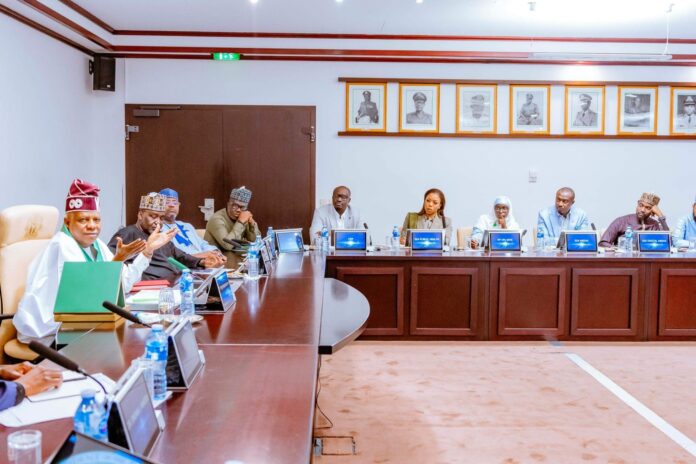Vice President Kashim Shettima has reaffirmed the federal government’s commitment to expanding access to ear, nose, and throat (ENT) healthcare services across Nigeria, stressing the urgent need to revamp the nation’s healthcare infrastructure, particularly in the ENT sector.
Speaking on Thursday while receiving a delegation from the Otorhinolaryngological Society of Nigeria (ORLSON) led by its President, Professor Aliyu Mohammed Kodiya, at the Presidential Villa in Abuja, Shettima highlighted the growing cases of hearing loss and the alarming shortage of specialised ENT personnel in Nigeria.
According to a statement by his spokesman, Stanley Nkwocha, the Vice President emphasized that President Bola Tinubu is resolute in addressing the core challenges affecting ENT healthcare—including poor infrastructure, insufficient equipment, and the worsening medical brain drain.
“A large portion of our population is affected by hearing issues, yet many suffer in silence due to social stigma,” Shettima said. “The problems you’re highlighting are real, and we are committed to meaningful, not superficial, solutions.”
He noted that Nigeria has fewer than 500 ENT surgeons, warning that the figure could drop further without urgent intervention.
“We’re losing our young doctors to Europe and elsewhere. But we’re working hard to make Nigeria a more attractive place for them to stay and serve,” Shettima said.
He stressed that government efforts would extend beyond purchasing equipment to include training, retaining, and improving the welfare of ENT professionals.
“Medical devices are useless without the skilled personnel to operate them,” he added.
In his remarks, Prof. Kodiya raised alarm over the global and national rise in hearing loss, citing World Health Organization (WHO) projections that by 2050, approximately 2.5 billion people will suffer some form of hearing loss, with 700 million requiring rehabilitation.
Kodiya also expressed disappointment over the non-implementation of Nigeria’s National Policy and Strategic Plan for Ear and Hearing Care, which expired in 2023 without being fully put into effect. He described it as a missed opportunity to build a lasting hearing care system.
He pledged ORLSON’s readiness to collaborate with the government, private sector, and international bodies to address the challenges and improve ENT healthcare access in the country.

